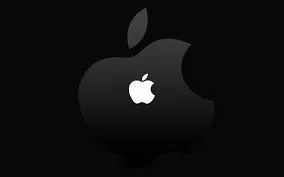Apple targets car production by 2024
Apple Inc is moving forward with self-driving car technology and is targeting 2024 to supply a passenger vehicle that would include its own breakthrough battery technology, people conversant in the matter told Reuters.
The iPhone maker’s automotive efforts, referred to as Project Titan, have proceeded unevenly since 2014 when it first began to design its own vehicle from scratch. At one point, Apple drew back the trouble to specialise in software and reassessed its goals. Doug Field, an Apple veteran who had worked at Tesla Inc, returned to oversee the project in 2018 and laid off 190 people from the team in 2019.
Since then, Apple has progressed enough that it now aims to create a vehicle for consumers, two people conversant in the trouble said, asking to not be named because Apple’s plans aren’t public. Apple’s goal of building a private vehicle for the mass market contrasts with rivals like Alphabet Inc’s Waymo, which has built robo-taxis to hold passengers for a driverless ride-hailing service.
Central to Apple’s strategy may be a new battery design that would “radically” reduce the value of batteries and increase the vehicle’s range, consistent with a 3rd one that has seen Apple’s battery design.
Apple declined to discuss its plans or future products.
Making a vehicle represents a supply chain challenge even for Apple, a corporation with deep pockets that creates many many electronics products annually with parts from round the world, but has never made a car. It took Elon Musk’s Tesla 17 years before it finally turned a sustained profit making cars.
“If there’s one company on the earth that has the resources to try to to that, it’s probably Apple. But at an equivalent time, it’s not a cellphone,” said an individual who worked on Project Titan.
It remains unclear who would assemble an Apple-branded car, but sources have said they expect the corporate to believe a producing partner to create vehicles. And there’s still an opportunity Apple will plan to reduce the scope of its efforts to an autonomous driving system that might be integrated with a car made by a standard automaker, instead of the iPhone maker selling an Apple-branded car, one among the people added.
Two people with knowledge of Apple’s plans warned pandemic-related delays could push the beginning of production into 2025 or beyond.
Shares of Tesla ended 6.5% lower on Monday after their debut within the S&P 500 on Monday. Apple shares ended 1.24% higher after the news.
Apple has decided to tap outside partners for elements of the system, including lidar sensors, which help self-driving cars get a three-dimensional view of the road, two people conversant in the company’s plans said.
Apple’s car might feature multiple lidar sensors for scanning different distances, another person said. Some sensors might be derived from Apple’s internally developed lidar units, that person said. Apple’s iPhone 12 Pro and iPad Pro models released this year both feature lidar sensors.
Reuters had previously reported that Apple had held talks with potential lidar suppliers, but it had been also examining building its own sensor.
As for the car’s battery, Apple plans to use a singular “monocell” design that bulks up the individual cells within the battery and frees up space inside the battery pack by eliminating pouches and modules that hold battery materials, one among the people said.
Apple’s design means more active material are often packed inside the battery, giving the car a potentially longer range. Apple is additionally examining a chemistry for the battery called LFP, or lithium iron phosphate, the person said, which is inherently less likely to overheat and is thus safer than other sorts of lithium-ion batteries.
”It’s next level,” the person said of Apple’s battery technology. “Like the primary time you saw the iPhone.”
Apple had previously engaged Magna International Inc in talks about manufacturing a car, but the talks faded as Apple’s plans became unclear, an individual conversant in those previous efforts said. Magna didn’t immediately answer an invitation for comment.
To turn a profit, automotive contract manufacturers often invite volumes that would pose a challenge even to Apple, which might be a newcomer to the automotive market.
“In order to possess a viable factory , you would like 100,000 vehicles annually, with more volume to return ,” the person said.
Some Apple investors reacted to the Reuters report on the company’s plans with caution. Trip Miller, managing partner at Apple investor Gullane Capital Partners, said it might be tough for Apple to supply large volumes of cars out of the gate.
“It would appear to me that if Apple develops some advanced OS or battery technology, it might be best utilized during a partnership with an existing manufacturer under license,” Miller said. “As we see with Tesla and therefore the legacy auto companies, having a really complex manufacturing network round the globe doesn’t happen overnight.”
Hal Eddins, chief economist at Apple shareholder Capital Investment Counsel, said Apple features a history of upper margins than most automakers.
“My initial reaction as a shareholder is, huh?” Eddins said. “Still don’t really see the appeal of the car business, but Apple could also be eyeing another angle than what I’m seeing.”
Source : Reuters


